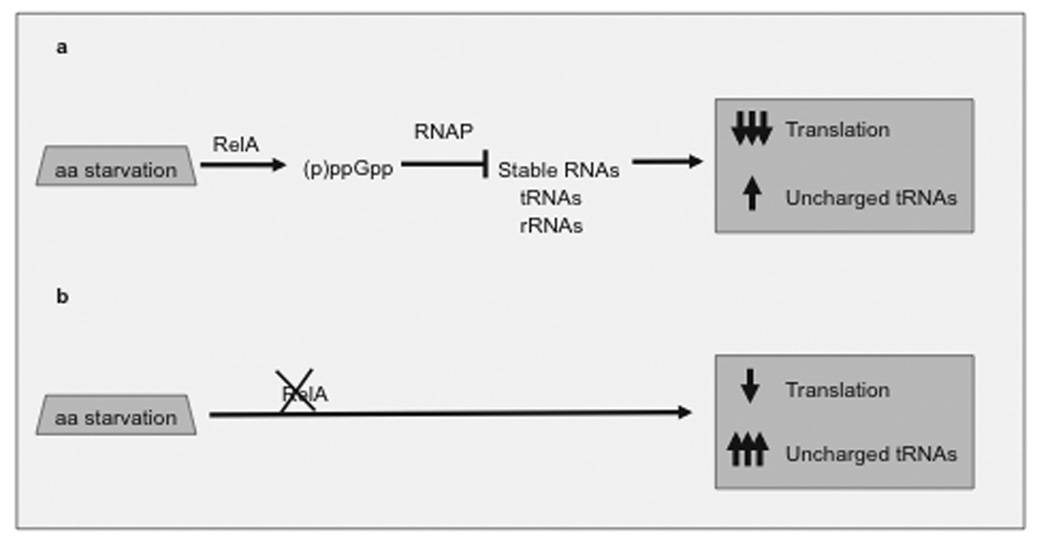Fig. (3). Metabolic response to amino acid starvation.
a. Stringent response. Amino acid depletion causes ribosome idling, which is sensed by a ribosomal protein, ppGpp-synthetase I (encoded by relA). Rel A activation produces an alarmon, (p)ppGpp, which interacts with RNA Polymerase. Conformational changes in the RNA polymerase lead to changes in promoter specificity, reducing the synthesis of stable RNAs and increasing expression of biosynthetic pathways (reviewed in [32]). This leads to a marked suppression in protein synthesis. b Relaxed response. RelA strains, which are defective in ppGpp synthetase I, maintain low levels of (p)ppGpp under conditions of amino acid starvation. This maintains the level of protein synthesis to continue, but generates high levels of uncharged tRNAs, which eventually also have an impact on levels of translation.

